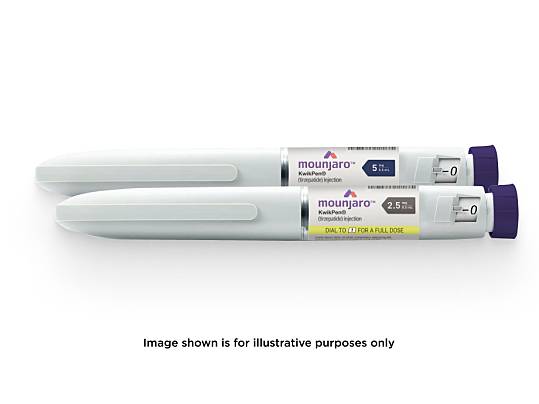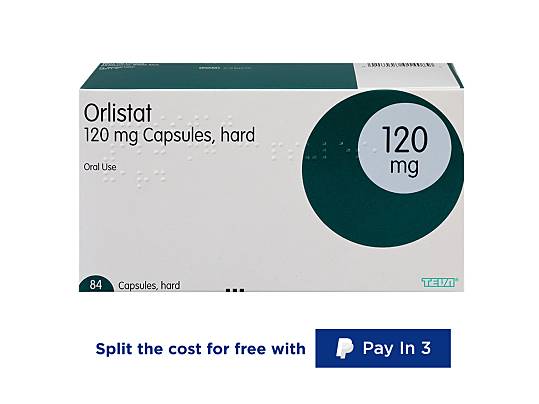Why am I not losing weight on Wegovy?

Medically reviewed by
Dr Zoe MillerLast reviewed: 09 Oct 2024
Wegovy has been proven to be an effective weight loss treatment, but it still takes time for it to have an effect. Studies show that most people will lose at least 5% of their starting weight, but only after 68 weeks of treatment and after reaching the maximum maintenance dose of 2.4mg.
It’s also important to remember that Wegovy isn’t meant to be used without being part of a wider weight loss plan. Sticking to a diet and exercise routine will help you get the best results from Wegovy.
In this guide, we’ll cover some of the main reasons why you might not be losing weight on Wegovy and what you can do to get better results.
1. You haven’t reached the right dose yet
If you’re not losing weight on Wegovy, it may be because you haven’t reached the highest maintenance dose yet, which is proven to be the most effective.
Clinical trials have shown that taking the 2.4mg maintenance dose for 68 weeks can help:
- 83.5% of people lose 5% or more of their starting weight
- 66.1% of people lose 10% or more of their starting weight
- 47.9% of people lose 15% or more of their starting weight
- 30.2% of people lose 20% or more of their starting weight
It takes 17 weeks to reach the maximum maintenance dose (2.4mg) following the Wegovy dosage schedule. If you’re not this far into your treatment, it’s best to stick to the Wegovy schedule and see if things change once you’ve been taking the maximum maintenance dose for at least 4 weeks.
How Wegovy dosing works
There are 5 doses of Wegovy available for weight loss: 0.25mg, 0.5mg, 1mg, 1.7mg and 2.4mg. You’ll normally follow the Wegovy dosage schedule until you reach the 2.4mg weekly dose, although you may stay on a lower dose if:
- You’re happy with your results at the current dose.
- You get side effects which could be worsened by increasing the dose.
- A higher dose wasn’t available at the time (when Wegovy was released, the manufacturer couldn’t keep up with supply and demand, so not all doses were available).
If any of the above apply to you, it might be time to speak with your doctor about your current dose of Wegovy. Here’s what you can do:
- If you’re taking a lower dose and no longer see results, as long as you’ve been taking your current dose for 4 weeks, you can start following the Wegovy dosage schedule again. Talk to your doctor for more information or to discuss any questions about the dosing schedule.
- If you have side effects that don’t seem to be getting better and you aren’t losing weight, discuss with your doctor whether Wegovy is the right treatment for you going forward.
- If you’ve had side effects but they’ve improved and you want to try a higher dose, this could improve your results. If you’re worried about a dose increase after getting side effects, speak to your doctor.
There are now other approved weight loss injections available in the UK (such as Mounjaro), so it’s less likely that Wegovy doses will be out of stock for a long time. You can always check our Wegovy page to see which doses we have in stock.

“If you get Wegovy prescribed through Asda Online Doctor, we offer the option to order injections in advance. This can help ensure you’ve got a continuous supply without interruptions in treatment. If the manufacturer does let us know of a possible stock issue, our team will prioritise existing patients and always try our best to make sure you never run out of medication.” Dr Babak Ashrafi, Clinical Lead for Service Expansion
2. You need to give it more time
Remember, studies show that Wegovy helps the majority of people lose at least 5% of their body weight, but only after 68 weeks. Everyone reacts differently to weight loss medication and how quickly you lose weight depends on many factors, such as:
- age
- metabolism
- starting weight
- how greatly you’ve changed your lifestyle and diet compared to before starting your treatment
- other medications you’re taking
- other health conditions
Wegovy is a long-term solution for treating obesity and helping patients maintain a healthy weight. It’s taken alongside a diet and exercise regime which will teach you how to make healthy lifestyle changes that you can continue to follow for the rest of your life.
Studies show that forming new habits can take on average 66 days. In the long run, these healthy lifestyle habits are better than following a fad or ‘crash’ diet with too many restrictions, even if it causes faster weight loss. As you aren’t likely to stick to it, the weight you’ve lost could come back.
Obesity is a long-term health condition, and it can’t be treated overnight. Although it’s not easy to wait when you want to see results, time and gradual lifestyle changes are needed to keep losing weight.
How long can weight loss on Wegovy take?
In the Wegovy clinical trials, final weight loss results weren’t calculated until 68 weeks on the highest maintenance dose. It takes 17 weeks to reach the maintenance dose, which amounts to 19 and a half months (almost 2 years) to see significant results. You should see weight loss results before then, but the best results are seen when taking Wegovy long-term.

No results found.
Please check your spelling or try another treatment name.
3. You’re not in a calorie deficit
In order to lose weight you need to eat fewer calories than you burn every day. While taking Wegovy, you need to keep track of your daily calorie intake or you may not lose weight. According to the NHS, the recommended daily calorie intake for:
- women is 2,000
- men is 2,500
To lose weight safely, it’s recommended to be in a calorie deficit of around 600 calories per day. This means eating 600 calories less than the usual recommended amount.
Wegovy lowers your appetite and keeps you feeling fuller so that you can reduce your calorie intake without the usual feelings of hunger, which often makes it difficult to stick to a diet plan. It cannot make you lose weight on its own.
What is a calorie deficit?
Calories are a measurement of energy found in food and drink, often labelled as ‘kcal’ on product labels. If you consume more calories than your body needs, the excess is then stored as fat, this can lead to weight gain over time. Unless you reach a ‘calorie deficit’, this will continue.
A calorie deficit happens when you burn more calories than you consume, which helps with weight loss in 2 ways:
- Your body needs to get energy from somewhere, so it will start using excess fat stored in the body, causing weight loss.
- You’ll no longer store extra calories as fat, as you aren’t consuming enough for your body to store. This will prevent any further weight gain.
Calorie-tracking apps can help you count your calorie intake. Some also give you the option to save meals you regularly eat, so you won’t have to keep doing it manually every time. You can also try following a meal plan which is calorie-counted for you.

“When you get Wegovy treatment prescribed through Asda Online Doctor, we’ll supply you with a weight loss support pack created by our team of doctors and nutritionists. This includes important information on how to reduce your calorie intake safely while still getting all the essential nutrients your body needs.” Dr Babak Ashrafi, Clinical Lead for Service Expansion
Do I really need to count my calories every day?
Counting calories isn’t always easy, but it can help you see where you’re consuming extra calories where you don’t need them. For example, alcohol, sugary drinks and hot drinks can contain a surprising number of calories, especially if you add sugar and full-fat milk to your coffee or tea.
Once you have a better picture of your daily calorie intake, this can help you make long-term changes for weight loss, such as:
- swapping out high-calorie products for healthier alternatives, for example swapping sugary cereal for oats or porridge
- using sweeteners instead of sugar in hot drinks
- drinking more water rather than sugary or high-calorie hot drinks (such as coffee with milk and sugar)
- switching to low-fat alternatives
- reducing portion sizes so you can still enjoy the foods you love
- cooking from scratch using whole foods instead of using pre-packaged food that often contains extra sugars and salt
Eventually, you’ll have a much better idea about the calories you’re consuming each day and you won’t need to count calories forever. If you notice that you’ve stopped losing weight, or you’re putting weight back on, it’s a good tool to come back to.
4. You’re not eating the right foods
Reducing your calorie intake is important, but what’s equally important is what those calories are made up of. If most of your calories consist of unhealthy, high-fat, highly processed foods, you may not lose weight despite eating less. You could also be at a greater risk of a nutrient deficiency, high cholesterol, high blood pressure or diabetes. This could slow down or stop your weight loss while taking Wegovy.
Foods you should avoid or cut back on while taking Wegovy include:
- ultra-processed foods, such as crisps, biscuits, ice cream, ham, sausages, flavoured yoghurts, microwave meals, cakes and fizzy drinks
- high-fat foods, such as chocolate, chips, butter, ghee, pizza, cheese, palm oil and cream
- refined carbohydrates, such as white pasta and white bread
- fried foods, such as takeaways, fish and chips, bacon or anything else deep-fried
The best foods to eat while taking Wegovy include:
- lots of lean proteins, such as tofu, eggs, seafood, chicken, turkey, fish and tempeh
- lots of fruits and vegetables – aim for around 5 to 10 a day
- some low-fat dairy, such as feta, low-fat Greek yogurt and skimmed milk or dairy alternatives like oat milk
- a small amount of healthy fats (about 10% of your calories at each meal), such as avocado, nuts, olive oil, eggs and dark chocolate
A balanced healthy diet is important for losing weight on Wegovy. Consuming the right foods will keep your body healthy and prevent the risk of diet-related health conditions that could prevent or slow down your weight loss results.
Food and Wegovy side effects
Semaglutide (Wegovy’s active ingredient) can upset your stomach, causing nausea, vomiting and diarrhoea. These Wegovy side effects could be caused or made worse by eating too many high-fat, acidic, greasy or processed foods.
This could prevent a dose increase or may make you want to stop taking it. A healthier diet could improve any stomach-related side effects while taking Wegovy so you can reach the maintenance dose and feel better.
5. You need to increase your physical activity
Physical activity is a great way to increase how many calories you burn each day. It also improves your mental health, keeps your heart healthy and provides you with more energy, which can all be linked to a better weight loss journey.
The NHS recommends doing some form of physical activity every day and over the week this should consist of at least:
- 150 minutes of moderate-intensity activity, or
- 75 minutes of vigorous activity
If you’ve not exercised regularly before, increase the amount you do each week until you reach these guidelines. Your routine should consist of strength training and cardio. Cardio is great for weight loss, but strength training can improve your resting metabolic rate (the amount of calories you use up each day, even at rest).
If you’re already doing enough exercise, it may be time to start increasing the difficulty of your exercises, such as running on a higher setting on the treadmill or doing more reps.
Being physically active in your daily life is important too. Walking more, doing chores, gardening or any other way you can keep yourself active is likely to help with weight loss.
As your weight decreases and your fitness levels improve, you’ll need to increase the intensity, length, or reps of your chosen exercise to keep losing weight, as you won’t burn as many calories from the same exercises. This should consist of both cardio and strength training for the best results.
6. You’re stressed
Stress can have a much bigger impact on your weight loss journey than you might think and there’s a reason people have coined the term ‘stress eating’. Studies show that the stress hormone cortisol contributes to a build-up of fat in the abdomen and affects other hormones, leading to an increase in appetite and food intake.
Stress is also linked to other health problems which may contribute to weight gain, such as high blood pressure. There are a few things you can do to reduce your stress levels, such as:
- talking about how you’re feeling to your doctor, a counsellor or friends and family about the stress in your life and what coping techniques you could try
- reducing the amount of pressure you’re putting on yourself to lose weight quickly and instead stick to small changes that you can manage – remember, changing your lifestyle takes time and can’t be done overnight
- using relaxation techniques, such as yoga, breathing exercises, meditation or other mindfulness techniques like affirmations
- exercising – find something fun or social that makes you feel good and increases your heart rate, such as a dancing class, water aerobics, hiking, cycling or rollerblading
- identifying your triggers to notice when you’re most likely to reach for food as a way to cope with stress – you can then introduce ways to manage this
Stress can contribute to weight gain and make it harder to stick to a diet and exercise routine. Losing weight can also be stressful, especially if you’re not seeing the results you want. Try a few stress relief techniques to reduce your stress levels or speak to a doctor or someone else who can help.
7. You may have an underlying health condition
Some underlying health conditions can make it harder to lose weight and these include:
- thyroid disorders, such as hypothyroidism
- insulin resistance, which can be caused by conditions like diabetes
- vitamin deficiencies
- hormonal imbalances, such as polycystic ovary syndrome (PCOS)
- depression or chronic stress
How these conditions interfere with weight loss depends on the condition, but you may need a little extra time or support to lose weight. For example, one study found that people with diabetes may lose less weight while taking Wegovy than those who don’t have diabetes.
If you have any unexplained symptoms and aren’t losing weight while taking Wegovy and following your diet and exercise plan, speak to your doctor. They may carry out some blood tests to check that you don’t have another condition which could be impacting your weight loss results.
8. You’ve reached a weight loss plateau
When you first start on your weight loss journey and make big changes to your lifestyle, your body will lose fat at a faster rate. Gradually, your metabolism will decline – this is a survival mechanism as the brain notices you’re losing fat stores and consuming fewer calories. You’ll then start losing weight at a slower rate, or stop losing weight altogether - as your body becomes adjusted to your new lifestyle. This is one of many reasons scientists believe we experience a ‘weight loss plateau’.
Whatever the reason, weight loss plateaus are normal and take anywhere from a few weeks to a few months to overcome. You can be doing all the right things, but your body may have different needs now that you weigh less. If you think you’ve reached a weight loss plateau, start by:
- re-evaluating your exercise routine – you may need to start adding new and varied exercises to your exercise routine, including strength training and cardio.
- checking your daily calorie intake – as time goes on, it can be easy for old habits like snacking or overeating to sneak back up on us. If you’ve stopped counting calories, now is the time to start again and make sure you’re still eating around 600 calories less than your recommended daily intake.
- looking at your overall diet – make sure it’s still balanced, healthy and not full of highly processed, sugary or fatty foods, as this could be preventing further weight loss.
- making sure that you’re sleeping enough – research shows that poor sleep can lead to an increase in poor eating habits, as we look for carbohydrate-heavy foods and sugars to keep us awake. It’s also associated with an increased risk of obesity and other weight-related health conditions, as well as a slower metabolism.
- seeing how you can improve your activity levels in your daily life – physical activity in all areas of your life can help you to lose weight and burn more calories. If you sit down for most of the day, especially if you work on a computer, try to stand up once an hour or go for a walk before or after work to get moving more.
Most people experience a weight loss plateau at least once in their weight loss journey, if not multiple times. Keep on track and see if there’s anything you can do to improve your results, and most importantly, don’t give up.
9. Wegovy isn’t the right weight loss medication for you
Although Wegovy results show that at least 83.5% of patients can lose 5% or more of their starting weight, this also means around 16% of patients won’t. No medication is 100% effective for everyone who takes it and this could be due to unwanted side effects or simply that the active ingredient doesn’t work well for you.
Before deciding whether Wegovy is the right treatment for you, make sure you know how to take Wegovy and use the pen correctly.
Your doctor will monitor your progress while taking Wegovy to make sure you’ve lost at least 5% of your starting weight after 12 weeks on the maintenance dose. Be honest about how well you’ve been following the Wegovy schedule and your diet and exercise regime too, as switching medications may not work if you don’t follow the lifestyle changes recommended by your doctor. Your doctor may suggest an alternative treatment like Mounjaro instead.
Wegovy alternatives
There are other weight loss medications available for prescription at Asda Online Doctor if Wegovy isn’t working or is no longer suitable.
Currently, the only approved and regulated weight loss injection available to buy now in the UK is Mounjaro. This contains tirzepatide, which belongs to the same medication group as Wegovy, so works in a similar way to reduce your appetite and keep you feeling full between meals.
You can switch from Wegovy to Mounjaro with the help of a doctor by waiting 5 weeks between your last dose of Wegovy and your first dose of Mounjaro.
Liraglutide is also approved in the UK as a weight loss injection, but the branded version Saxenda is long-term out of stock. There should be an unbranded version of liraglutide available later this year but no date has been released yet.
If you’d prefer an oral medication, we can also prescribe the following weight loss pills:
- Orlistat – a generic medication containing 120mg of orlistat. It works by reducing how much fat you absorb at each meal and can be taken up to 3 times per day. Around a third of your dietary fat will be excreted through your stools instead.
- Xenical – a branded medication containing 120mg of orlistat. Works in the same way and can be taken 3 times per day. The only difference is the price and manufacturer.
- alli – a branded, over-the-counter orlistat medication that comes in 60mg tablets. Taken in the same way, it also reduces how much fat you absorb at each meal. You don’t need a prescription, but a doctor or pharmacist still needs to ask you some questions to make sure it’s safe for you to take.
- Mysimba – a different kind of medication from orlistat-based products, Mysimba contains 2 active ingredients called naltrexone and bupropion. This combination is thought to affect the appetite and energy control centres in your brain, reducing cravings and pleasure from food. This makes it easier to follow a diet plan and eat less without feeling hungry.

No results found.
Please check your spelling or try another treatment name.

After completing her first degree, she went on to study graduate-entry medicine at Warwick University. After graduating as a doctor, she worked within the West Midlands in Urology, Respiratory Medicine, Infectious Disease, and Psychiatry before transitioning into a full-time medical communications role.
Meet our doctorsLast reviewed: 09 Oct 2024
-
Calorie counting NHS Better Health (accessed 05 August 2024)
-
Making health habitual: the psychology of ‘habit-formation’ and general practice (2012) PubMed (accessed 05 August 2024)
-
Metabolic adaptation to weight loss: implications for the athlete (2014) PubMed (accessed 05 August 2024)
-
Physical activity guidelines for adults aged 19 to 64 (2024) NHS (accessed 05 August 2024)
-
Sleep Deprivation: Effects on Weight Loss and Weight Loss Maintenance (2022) PubMed (accessed 05 August 2024)




(Reviews are for ZAVA UK)


GMC: 7074021

GMC: 6149061

GMC: 7085115











